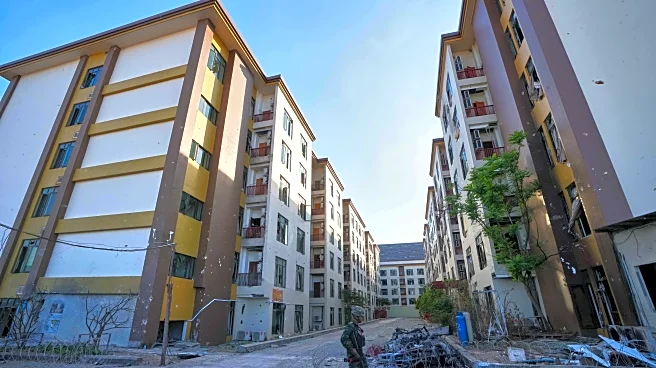Rapid Read • 7 min read
Iran's President Masoud Pezeshkian has ordered the suspension of cooperation with the International Atomic Energy Agency (IAEA) following airstrikes by the U.S. and Israel on its nuclear facilities. The decision comes amid heightened tensions after a 12-day conflict with Israel. The suspension could limit the IAEA's ability to monitor Iran's nuclear activities, which have been enriching uranium to near weapons-grade levels. Despite this, Iranian Foreign Minister Abbas Araghchi indicated a willingness to continue negotiations with the U.S., although no immediate plans for talks have been announced.
AD
This development significantly impacts international efforts to monitor and control Iran's nuclear program. The suspension of cooperation with the IAEA raises concerns about Iran's nuclear intentions and the potential for it to develop nuclear weapons. The situation exacerbates regional tensions, particularly with Israel, and complicates diplomatic efforts to resolve the nuclear issue. The decision also reflects Iran's strategy of using nuclear cooperation as leverage in negotiations with Western powers. The international community, especially countries involved in the 2015 nuclear deal, will be closely watching Iran's next moves.
The suspension of cooperation with the IAEA could lead to increased international pressure on Iran, including potential sanctions. The U.S. and its allies may seek to re-engage Iran in negotiations to prevent further escalation. The situation remains fluid, with the possibility of either diplomatic resolution or further conflict, depending on Iran's actions and the international response. The IAEA will likely continue to seek engagement with Iran to ensure compliance with international nuclear agreements.
AD
More Stories You Might Enjoy













